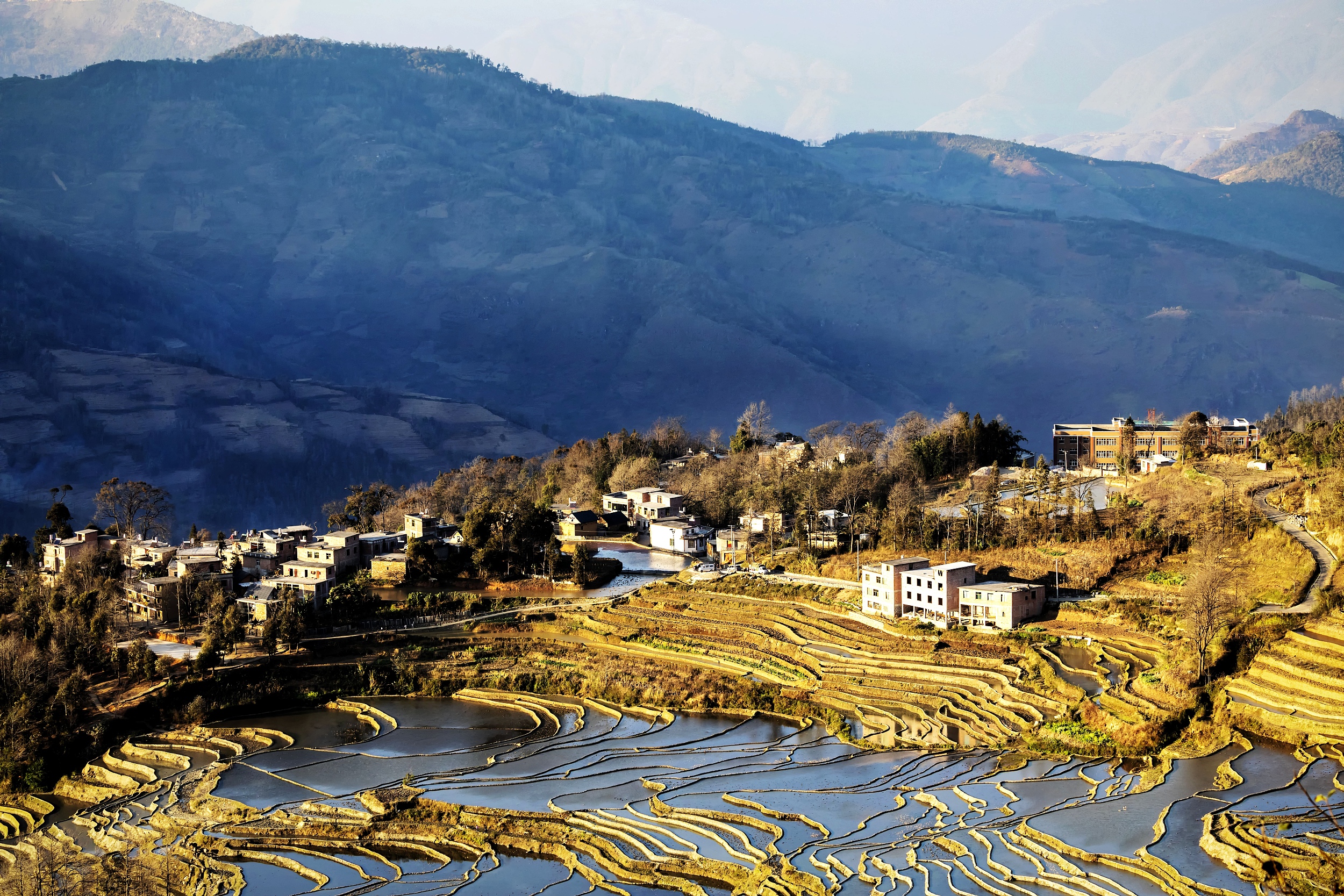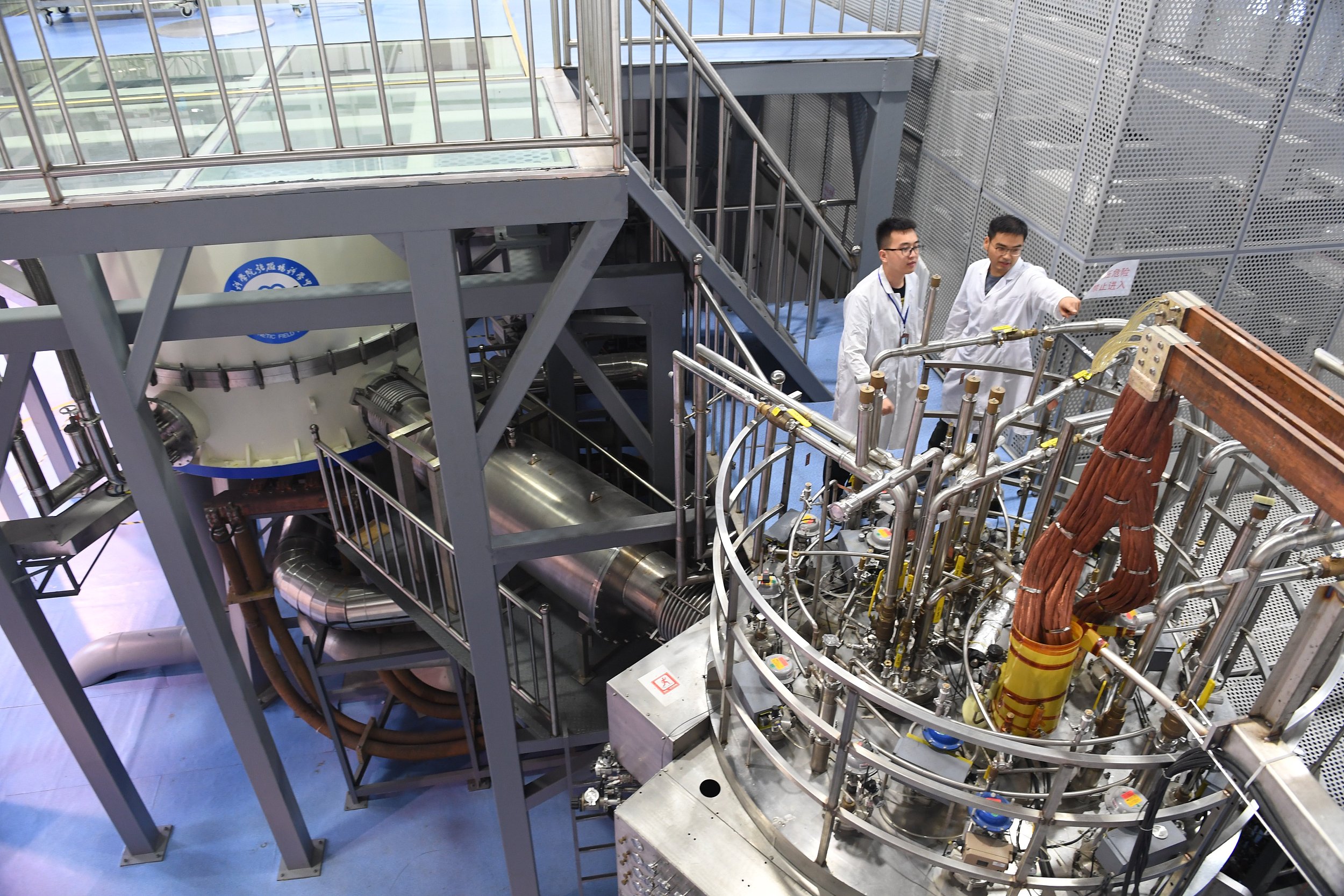Hani Rice Terraces: a Model of Harmony Between People and Nature

A general view of Hani Rice Terraces. (PHOTO:VCG)
By BI Weizi
Hani Rice Terraces, the system of Hani rice-growing terraces, are mainly located in Honghe prefecture, Yunnan province, China, with a total area of over 160,000 acres and a history of more than 1,300 years. In 2013, the Terraces were listed as a World Heritage Site, since "The resilient land management system of the rice terraces demonstrates extraordinary harmony between people and their environment, both visually and ecologically" as stated by the UN agency.
The Hani people are a mountainous agricultural people and have shown great wisdom and ability in cleverly utilizing the mountain climate, soil and water resources. With forests on top of mountains collecting rainfall water, villages were usually built in the middle of the mountain about 1000 meters below the forests, with terraces on the bottom, and the intricate water system of canals and ditches running through them. This structure of "four degrees of co-construction" of forest, villages, terraces and water supply creates a high degree of integration between humans and nature, and reflects the characteristics of compound agriculture with reasonable structure, complete functions, various values and strong self-regulating ability.
Ecological interactions also play a pivotal role in the Hani Rice Terraces system with a maximum vertical span of 1500 meters, a maximum slope of 75 degrees, and a maximum field area of 2828 square meters. The main crop of the terraces, red rice, is cultivated on the basis of a complex, integrated farming and breeding system. In this system, ducks fertilize the young rice plants, while chickens and pigs provide fertilizer for more mature plants. Buffaloes plough the fields for the next year's planting, and snails eat up pests in the water.
For more than a thousand years, Hani Rice Terraces have made full use of and follow the traditional agricultural methods, creating a rich and splendid terrace culture of the Hani people.


